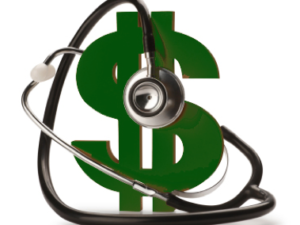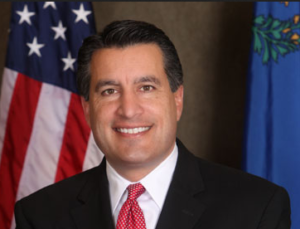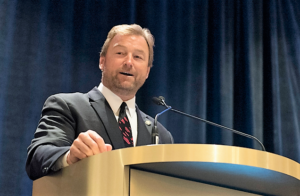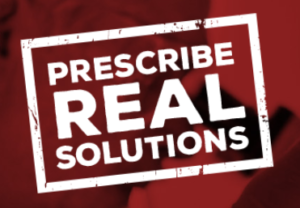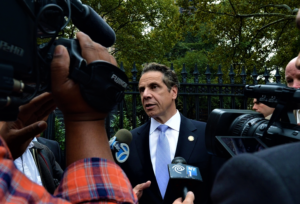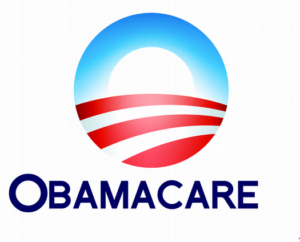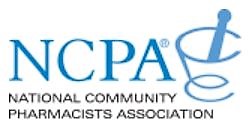- How insurance reimbursement affects Nevada health care (reviewjournal.com)
It’s been in the air for much of the past year, and as many of the some-feared and some-promised changes have happened around us, those health care business owners who rely on insurance reimbursement have waited with bated breath for a sign of what’s to come. The Trump administration has promised, via stump speech and now executive order, the rapid repeal and replacement of the Affordable Care Act, but what is simple to say is often far more difficult to accomplish.
- MEDICARE UNSUSTAINABILITY... the U.S. population continues to age... This has contributed to explosive growth in Medicare participation...
- INSURING THE UNINSURED...the American public has determined to no longer accept 30 million uninsured Americans who are not Medicare-eligible as the status quo. Caring for these individuals through catastrophic care via public emergency rooms has become untenable both fiscally and morally…
- VALUE-BASED CARE...care reimbursement models have been established to replace the traditional fee-for-service model that has dominated American health care for generations. FFS models reimburse health care providers for services rendered in the form of treatment or testing and have seen unsustainable inflation over the past 10 years…
- ELECTRONIC HEALTH RECORDS...One of the key elements of a VBC system is the interoperability of health care records, which permits and encourages (by ease of use) coordination of care across providers...This reduces redundancies and the probability of contraindicated treatment being administered in good faith…
- ACCOUNTABLE CARE ORGANIZATIONS...are groups of health care providers who come together to voluntarily give coordinated high-quality care to their Medicare patients. ACOs tie payments to quality metrics and the cost of care…
- WHAT’S NEXT?...Increase capacity utilization...Consolidation…
- SCALING UP...While apparently antithetical to the current market, scaling up is the external version of increasing capacity utilization. Often a practice’s assets can only be maximized by increasing the scale of the practice...
- Nevada’s medical community on board with governor’s health-care priorities (reviewjournal.com)
Nevada’s medical community is largely in agreement with Gov. Brian Sandoval’s budgetary priorities to improve health care in the state over the next two years...Now comes the hard part: Finding funds to adequately address those issues during the legislative session...without creating new gaps in the state’s strained health care system...Sandoval and medical organizations have reached a general consensus on three main issues:
- ...the state’s continuing opioid abuse problem…Sandoval said he’ll introduce the Controlled Substance Abuse Prevention Act this year to provide “more training and reporting and heightened protocols for medical professionals” for prescribing pain-relieving but addictive opioids.
- ...funding for the UNLV School of Medicine…The proposed budget includes an additional $10 million in graduate medical education funding to increase medical residency and fellowship programs in the Silver State…
- ...an increase in Medicaid reimbursement to physicians...Sandoval’s proposed budget for the next biennium includes $8.6 million in increased reimbursement for specific groups of health care providers, including those in assisted living facilities, adult day cares and pediatric surgical services. When matched with federal dollars, that will amount to a spending increase of nearly $34 million...
- Provider status legislation co-sponsored by 108 House Representatives (drugstorenews.com)
A little more than one week following its reintroduction in the Senate, provider status legislation is again being entertained in the House...the Pharmacy and Medically Underserved Areas Enhancement Act (H.R.592)...will make it easier for Medicare patients in underserved communities to receive care...The...Act would allow Medicare beneficiaries to receive basic care such as immunizations, diabetes management, blood pressure screenings and routine checks from pharmacists. The bill reached impressive levels of bipartisan support… There is currently no avenue for Medicare to directly reimburse pharmacists for providing this care...The work already is underway to build on the momentum that was started in the last Congress, to accelerate the campaign to enhance the quality, accessibility and affordability of patient care through pharmacist-provided services...Pharmacists are highly-accessible, clinically-trained medication experts who can improve health outcomes and reduce overall costs…We hope the common-sense, bicameral, bipartisan legislation, which also generated a lot of support in the previous Congress, can pass both chambers and make it to President Trump’s desk for his signature...
- Nevada leaders want Heller to explain how key parts of ACA will be replaced if measure is repealed (reviewjournal.com)
The top two Democrats in the Nevada Legislature are calling on U.S. Sen. Dean Heller to explain how Republicans in Congress will replace key provisions of the Affordable Care Act if they repeal it...Aaron Ford and Jason Frierson...sent a letter...posing...questions to Nevada’s senior senator in Congress...the state leaders asked what steps will be taken to ensure people who purchased coverage through the state exchange and those who receive federal tax credits will still be able to buy affordable insurance...what will be done to ensure more than 217,000 Nevadans receiving coverage under expanded Medicaid eligibility will remain covered; guarantees for women’s health care; and continued mandates to cover people with pre-existing conditions and allow parents to keep children on their policies until age 26...“I would anticipate nobody’s going to lose their health care for the next two or three years until the replacement is put in place,” Heller said...
- Pharma lobby launches crusade against Cuomo’s ‘flawed’ drug pricing plan in NY (fiercepharma.com)
Pharma has heard enough of New York Governor Andrew Cuomo’s ideas for lowering drug prices. Just a month after the governor unveiled his plan, the industry’s trade group is rolling out a counteroffensive urging state officials to “Prescribe Real Solutions”...Gov. Cuomo’s plan would create a board to rule on “fair prices” for certain expensive drugs. Then, the state would mandate that Medicaid refuse to pay more than that for those meds...Cuomo's proposal also factors into private market sales. If a pharma company sold into New York at a higher price than the board’s "fair price," the state would collect a surcharge...PhRMA is having none of that. The group’s Prescribe Real Solutions website asks the public to “demand real solutions” from their lawmakers...PhRMA’s deputy vice president for state advocacy in New York, maintains that Cuomo's proposal "does nothing to improve patient access to medicines, bring life-saving drugs to the market or create jobs" in the state..."This is not the time for unworkable proposals that would create new bureaucracies without actually addressing any of the factors that impact the prices paid by patients,"...
- U.S. House panel to take up bill to spur generic drug development (reuters.com)
...House of Representatives subcommittee will take up bipartisan legislation next week to foster generic drug development…President (Donald) Trump made it clear...he wants competition to lower drug prices, and that is precisely what this measure will help accomplish...Specifically the bill will require FDA to prioritize, expedite and review generic applications of drug products that are currently in shortage, or where there are few manufacturers on the market...the bill would also increase transparency around the backlog of generic drug applications at the FDA, saying there was an "unacceptably high" number...
- New York takes drug pricing into its own hands with new clampdown (fiercepharma.com)
New York Governor Andrew Cuomo has...unveiled a first-of-a-kind proposal to curb “exorbitant” prescription prices in the Empire State...New York will create a “review board” to determine the “fair price” for certain expensive drugs under the plan...and then the state will mandate that Medicaid won’t pay more than that amount for its purchases. When a company charges Medicaid more than the board’s set price, it’ll owe a “rebate for any amount” in excess...The proposal would also impact private markets. If a pharma company sells into the state at a price higher than the board’s set amount, that sale will be hit with a surcharge; the government will collect that money and reallocate it “back to the insurance providers to reduce the cost of insurance.”…Lastly, Cuomo's proposal includes new restrictions on pharmacy benefit managers, forcing them to register with the state and disclose “financial incentives or benefits for promoting the use of certain drugs, as well as other financial arrangements affecting customers,”...Then, under the plan, PBMs must have a license beginning in 2019 and the state could revoke those licenses for “deceptive, unfair, or abusive business practices.”...
- Report: Device tax cost medtech industry 29k jobs (centerwatch.com)
The U.S. medical technology industry saw its jobs ranks fall by nearly 29,000 while the medical device excise tax was in effect, according to the latest figures from the U.S. Department of Commerce. Specifically, from 2012 to 2015, the number of U.S. medtech jobs declined from 401,472 to 372,638—a loss of 28,834 jobs or a 7.2% decrease for the time period...These numbers reveal just how devastating of an impact the device tax had on our industry and underscore the urgent need for permanent repeal…American device manufacturers are ready to grow and create jobs, the best message this Congress and the Administration can send is through a full and permanent repeal... Bipartisan majorities in both the House and Senate are on record in support of full and permanent repeal...
- Critics eye repeal of ObamaCare prescription drug tax (thehill.com)
Employers and drugmakers are eager to say good riddance to an excise tax on brand-name prescription medicines that could get stripped under the latest GOP plan to repeal ObamaCare...While the law’s other major taxes, like the medical device or so-called Cadillac taxes, generated major campaigns seeking their repeal, the prescription drug fee has garnered little publicity. But it’s no negligible element among the law's funding sources. It's expected to bring in $27 billion over a 10-year period, according to the Joint Committee on Taxation's 2010 estimates...But the branded pharmaceutical fee never attracted bipartisan backing for repeal and it went into effect in 2010...consumers are "insensitive to changes in the drug prices."...if someone needs a specialty drug that is likely to be a brand-name product, his or her insurance is going to pay for it or that person will have to pay out of pocket for that amount...if the price happens to go up, you’re still going to pay for the drug...The fight over repealing other ObamaCare taxes means it's still unclear whether the prescription fee will be gone in the first round of the health law’s repeal measures...there could be other opportunities to get rid of it. ObamaCare repeal is looking to be...a series of legislative actions and regulatory actions over the course of the next year or so...
- NCPA suggests any changes to ACA maintain Rx coverage and pharmacy access (drugstorenews.com)
The National Community Pharmacists Associatio...reached out to Republican congressional leaders to provide the community pharmacist perspective on repeal and replacement of the Affordable Care Act and potential Medicaid changes...Specifically, NCPA recommended any repeal and replacement of ACA include the following provisions:
- Preserve prescription drug coverage as an essential benefit to help reduce overall health costs;
- Require a robust pharmacy network that includes meaningful access to retail pharmacies, including independent pharmacies, for patients to fill their prescriptions and promote proper adherence;
- Maintain current definition for Average Manufacturer Price that is used to determine Medicaid reimbursements;
- Retain sections of the ACA that were dedicated to improving Medicare Part D medication therapy management programs, including an annual comprehensive medications review, and build upon it to further integrate pharmacists into the health care delivery system; and
- Keep transparency provisions requiring pharmacy benefit managers serving exchange plans and Medicare Part D to disclose to HHS the generic dispensing rate for retail and mail order pharmacies, the amount of the rebates collected, the amount passed onto the health plan and the total difference between what the PBM charged the plan and what it paid out to pharmacies

